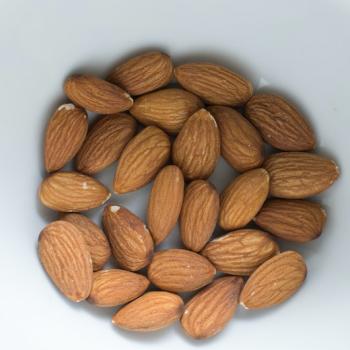
Inflammation is a biological process that has received quite a bit of media attention in recent years. It has also been the subject of numerous health trends, especially in the fields of diet and weight loss. Researchers define inflammation as:
“a very complex response to an injury, infection, or other stimulus, in which many different cell types and secreted factors orchestrate protective immunity, tissue repair, and resolution of tissue damage.”
New research suggests there is an important link between chronic inflammation and aging, with some scientists believing inflammation is the single most critical factor in human aging. While the jury is still out on whether this is really true, we can certainly review the current existing information to discover whether inflammation is something we need to be concerned about if we wish to age gracefully.
SPOILER ALERT: It is!
The Research
Most research has been focused on understanding the role of inflammation among the elderly, especially as far as degenerative diseases are concerned. While the overall role of inflammation in the human lifespan from youth to old age is still unclear, there is a fair amount of consensus that inflammation plays a primary role in the accelerated aging process usually seen among the elderly.
An article about a panel organized by the National Institutes of Health’s 2012 Geroscience Interest Group on aging stated that:
“It is now recognized that a mild pro-inflammatory state is correlated with the major degenerative diseases of the elderly.”
What causes inflammation?
This begs the question: how does inflammation start in the body?
A really accurate answer to this question requires a great deal of medical and scientific knowledge and jargon to properly express and understand. I don’t have this, and you might not either.
But a reasonably concise summary from a recent study in the review journal Recent Patents on Inflammation & Allergy Drug Discovery explains:
“The inflammatory process induces oxidative stress and reduces cellular antioxidant capacity. Overproduced free radicals react with cell membrane fatty acids and proteins, impairing their function permanently.”
What exactly does all that mean? Inflammation, simply put, is the body’s attempt to repair an abnormal situation in the body.
Here’s an example: You get up in the morning, but you’re barely awake. Your eyes aren’t fully open, so on your way around the bed, you stub your toe on the bed post. That toe, since you stubbed it really hard, starts to swell and goes from a bright red color to black and blue as it heals and goes back to normal. That inflammation process is the body sending reinforcements to the hurt area to protect and/or heal it.
When inflammation goes chronic
Over time, unresolved inflammation can turn chronic. Chronic inflammation occurs when the body’s immune system is in a constant state of activation, leading to long-term damage to tissues and organs. While inflammation is a natural response to injury or infection, chronic inflammation can have detrimental effects on our health, particularly as we age. In recent years, scientific research has shed light on the connection between chronic inflammation and accelerated aging, providing valuable insights into how we can promote healthy aging.
Chronic inflammation is what contributes to the aging process. As research has found, chronic inflammation induces stress (which is interesting, because it is a result of stress on the body, so it results in what causes it), and certain bodily functions and capacities (including the ability to deal with stress) are severely limited. Many of these are critical to the aging process, so these functional problems speed up aging.
Exploring the Link Between Inflammation and Aging
Scientific studies have revealed that chronic inflammation plays a significant role in the aging process. As we age, our immune system undergoes changes that can lead to a chronic inflammatory state. This persistent inflammation can contribute to the development of age-related diseases such as cardiovascular disease, diabetes, and even certain types of cancer.
One of the key mechanisms through which chronic inflammation accelerates aging is the production of free radicals. These highly reactive molecules can damage cells and DNA, leading to cellular dysfunction and the accumulation of age-related damage. Additionally, chronic inflammation can disrupt the delicate balance of hormones and signaling molecules in the body, further contributing to the aging process.
Wisdom from Scripture on the Aging Process
The science surrounding this issue certainly is compelling. But what does the Bible have to say about it? Interestingly, the Scriptures contain insights into the aging process and how to navigate it with grace and wisdom. While the Bible does not explicitly mention chronic inflammation, it does offer valuable teachings on health and wellness principles that can help us combat the effects of aging.
Examining passages that address inflammation and its effects
Although the Bible does not specifically address chronic inflammation, it does contain passages that mention inflammation and its effects on the body. In the book of Job, for example, Job speaks of his physical ailments, describing his body as being covered in sores and filled with worms (see Job 7:5). While Job’s condition may not have been directly linked to chronic inflammation, it provides a powerful illustration of the suffering caused by physical afflictions.
The book of Proverbs contains wisdom regarding the effects of unhealthy lifestyle choices. Proverbs 14:30 (NIV) states:
“A heart at peace gives life to the body, but envy rots the bones.”
This verse highlights the importance of maintaining emotional well-being and avoiding negative emotions, which can contribute to chronic inflammation and accelerate the aging process.
Exploring biblical wisdom regarding foods and practices that can help reduce inflammation and promote healthy aging
The Bible offers guidance on foods and practices that can help reduce inflammation and promote healthy aging. In Leviticus 11, God provides dietary laws for the Israelites, emphasizing the consumption of clean and unprocessed foods. These guidelines promote a diet that is rich in fruits, vegetables, and lean proteins while avoiding foods that can contribute to inflammation, such as shellfish and pork.
Additionally, the book of Daniel provides an example of a dietary intervention that can reduce inflammation and improve overall health. Daniel and his companions chose to eat a diet of vegetables and water for a period of time, which resulted in improved physical and mental well-being. This example highlights the importance of nourishing our bodies with wholesome, plant-based foods that can help reduce inflammation and support healthy aging.
How Our Habits and Choices Can Contribute to Chronic Inflammation and Accelerate Aging
Now that we have a basic understanding of the aging process and inflammation’s role in it, how do we prevent inflammation from occurring? There is no definite answer to this question; however, two recent studies examined how lifestyle changes can halt the inflammation process.
Studies from both Nutrients and Antioxidants and Redox Signaling examined the anti-inflammatory and anti-aging effects of calorie restriction and exercise. This might not be a surprise to anyone, but these studies found that an unhealthy diet and a sedentary lifestyle increased inflammation and, as a result, the aging process.
In fact, the study from Antioxidants and Redox Signaling found:
“major chronic aging-related diseases such as atherosclerosis, arthritis, dementia, osteoporosis, and cardiovascular diseases, are inflammation-related.”
It is certainly not a coincidence that most of these conditions are also related to a sedentary lifestyle and poor dietary choices.
While chronic inflammation is influenced by various factors, our lifestyle choices play a significant role in its development and progression. Unhealthy habits such as a sedentary lifestyle, poor diet, smoking, excessive alcohol consumption, and chronic stress can all contribute to chronic inflammation and accelerate the aging process.
But this is actually good news, because unhealthy habits can be replaced with healthy ones. And the most effective ones tend to be easiest to implement.
Move your body
A sedentary lifestyle, characterized by prolonged periods of sitting or low physical activity, can lead to weight gain and increased inflammation in the body. When we engage in limited physical activity, our bodies burn fewer calories, which leads to an energy imbalance. This excess energy is stored as fat, resulting in weight gain over time.
Furthermore, a sedentary lifestyle promotes the development of insulin resistance, a condition in which our cells become less responsive to the hormone insulin. This can lead to elevated blood sugar levels, increasing the risk of type 2 diabetes and cardiovascular diseases.
Regular physical activity, on the other hand, has been shown to reduce inflammation and promote healthy aging. Engaging in moderate-intensity exercise, such as brisk walking, running, or cycling, helps to increase heart rate and promote blood circulation throughout the body. This enhanced blood flow aids in the delivery of oxygen and nutrients to cells, which supports their optimal functioning and reduces the risk of inflammation.
Moreover, some research suggests exercise can have a direct impact on inflammation. Moderate-intensity exercise has been shown to reduce the production of pro-inflammatory molecules and increase the levels of anti-inflammatory substances in the body. This anti-inflammatory effect helps to counteract the harmful consequences of chronic inflammation, thus reducing the risk of diseases associated with inflammation.
Change what you eat
Additionally, a diet rich in processed foods, sugar, and unhealthy fats can lead to increased inflammation, while a diet high in fruits, vegetables, whole grains, and lean proteins can help reduce inflammation and support healthy aging. These foods are rich in beneficial substances called antioxidants. Antioxidants have been found to reduce the work of free radicals and inflammation within the body. Common antioxidants include vitamins A, C, E, folic acid, and beta carotene.
Vitamin A is abundant in foods like carrots, sweet potatoes, and spinach. It helps protect cells from damage, supports eye health, and boosts the immune system. Beta carotene, which is also found in orange and yellow fruits and vitamins, is converted into vitamin A in the body. Vitamin C, found in citrus fruits, strawberries, and bell peppers, is well-known for its immune-boosting properties and ability to repair damaged tissue. Vitamin E, present in nuts, seeds, and vegetable oils, acts as a powerful antioxidant that protects cells from oxidative stress. Folic acid, commonly found in leafy greens, legumes, and fortified grains, is essential for the production of new cells and helps prevent certain birth defects.
By adopting a diet that is rich in these antioxidants, you can reduce your risk of experiencing chronic disease, such as heart disease, certain cancers, and neurodegenerative disorders like Alzheimer’s disease.
Incorporate Prayer, Meditation, and Spiritual Practices along Your Health Journey
In addition to dietary interventions, incorporating prayer, meditation, and spiritual practices into your health journey can also positively impact chronic inflammation and aging. Numerous studies have shown that engaging in regular prayer and meditation can reduce stress levels, promote emotional well-being, and even modulate the immune system.
However, our time spent praying and meditating should not be unfocused. The Bible encourages believers to seek God’s wisdom and guidance in all aspects of life, including health and wellness. Philippians 4:6-7 (NIV) reminds us:
“Do not be anxious about anything, but in every situation, by prayer and petition, with thanksgiving, present your requests to God. And the peace of God, which transcends all understanding, will guard your hearts and your minds in Christ Jesus.”
Incorporating prayer and meditation into your daily routine can help reduce stress, promote emotional well-being, and ultimately support healthy aging.
Implement Biblical Teachings on Health and Wellness to Combat Chronic Inflammation and Promote Healthy Aging
To incorporate biblical teachings on health and wellness into our daily lives, it is essential to start with small, manageable steps. Begin by replacing some of the processed junk in your kitchen with whole foods like fruits, vegetables, whole grains, and lean proteins. In this way, you can minimize your consumption of the inflammation causing processed sugar and unhealthy fats.
You should also schedule in regular physical activity. Aim for at least 30 minutes of moderate exercise most days of the week. Start with two or three days a week, and then add days as your schedule and energy levels allow.
In addition to these lifestyle changes, set aside time each day for quiet reflection, prayer, and reading Scripture. I find that morning works best for me, right when I wake up. That’s usually before everyone else in the house wakes up, so it’s truly the only quiet time I have in my day. One thing I’ve also started doing in the mornings, in addition to my Bible reading and prayer time is journaling with an app called Rosebud.* I have been journaling with Rosebud for two weeks, and I can safely say it is becoming addictive. I gain so much clarity and focus from my time spent in this app (available on the computer, as well as your phone), I never want to miss a day!
*This is a referral link. I get $5 off my subscription, and you do too, if you join using this link.
Embrace the Aging Process with Gratitude, Faith, and a Balanced Perspective
As we navigate the process of aging, it is vital to embrace it with gratitude, faith, and a balanced perspective. The Bible reminds us that our worth is not determined by our outward appearance or physical abilities (see 1 Samuel 16:7), but rather by our inner character and relationship with God. Embrace the wisdom that comes with spiritual maturity, and focus on cultivating a heart of gratitude for your lifelong journey with Him.
Recognize that aging is a natural part of life, and your body may change over time. Embrace self-care practices that prioritize overall wellness and maintain a positive mindset. Surround yourself with a supportive community that encourages and uplifts you as you navigate the challenges and joys of aging.
Recognize the Importance of Holistic Health Approaches that Encompass Both Scientific Findings and Biblical Wisdom
Chronic inflammation has been shown to have a significant impact on the aging process. By understanding the link between inflammation and aging, exploring biblical wisdom on health and wellness, and implementing lifestyle changes rooted in both scientific findings and biblical teachings, you can experience healthy aging and combat the effects of chronic inflammation.
By embracing both science and Scripture, we can navigate our journey gracefully, ensuring we maintain optimal well-being in body, mind, and spirit.
The Bottom Line Concerning Chronic Inflammation and Aging
It is fair to conclude that inflammation is strongly correlated with, and may even be a direct cause of, many aging and degenerative conditions we face later in life. We can also be secure in the knowledge that inflammation is a reactive process of our body’s attempt to heal situations that threaten physical balance, or to combat stress-inducing physical conditions, like poor dietary choices and lack of exercise.
To boil it down to the simplest of terms: inflammation increases the aging process, and poor diet and lack of exercise increase inflammation. Therefore, stick to a healthy diet as much as possible and get regular exercise to stay younger longer!
As you embark on your journey towards healthy aging, remember to incorporate both scientific knowledge and biblical wisdom into your lifestyle choices. Consult with healthcare professionals, nutritionists, and spiritual leaders who can provide guidance and support. Embrace the process of aging with gratitude, faith, and a commitment to overall wellness. By doing so, you can unravel the connection between chronic inflammation and aging. In this way, you can unlock the secrets to a vibrant, fulfilling life.
What do you think?
Have you ever considered inflammation to be a problem? What steps are you going to take to reduce it for a healthier, livelier you? Please share your thoughts in the comments.














